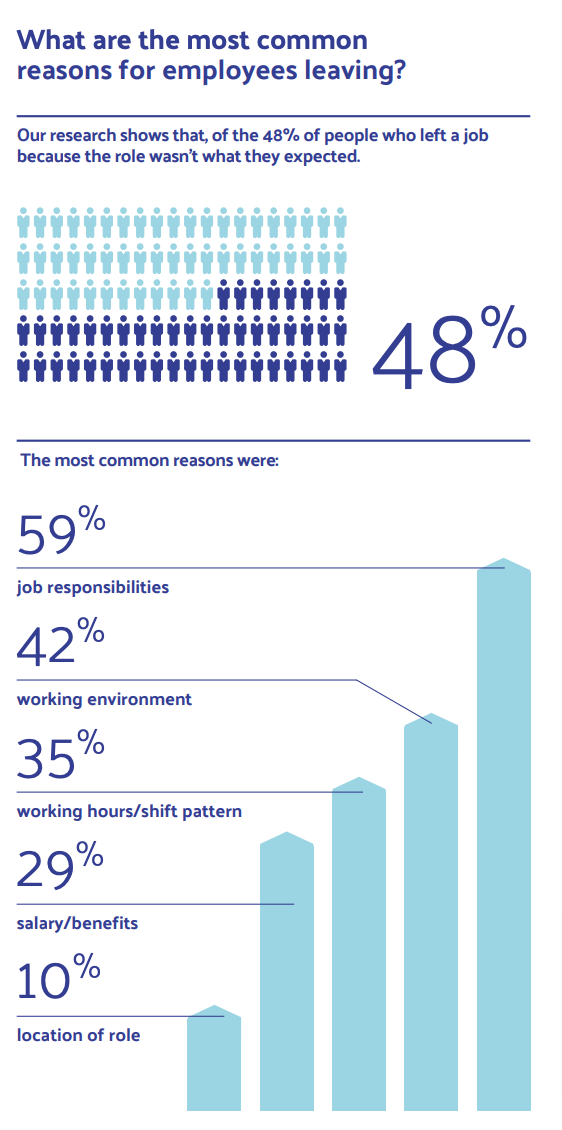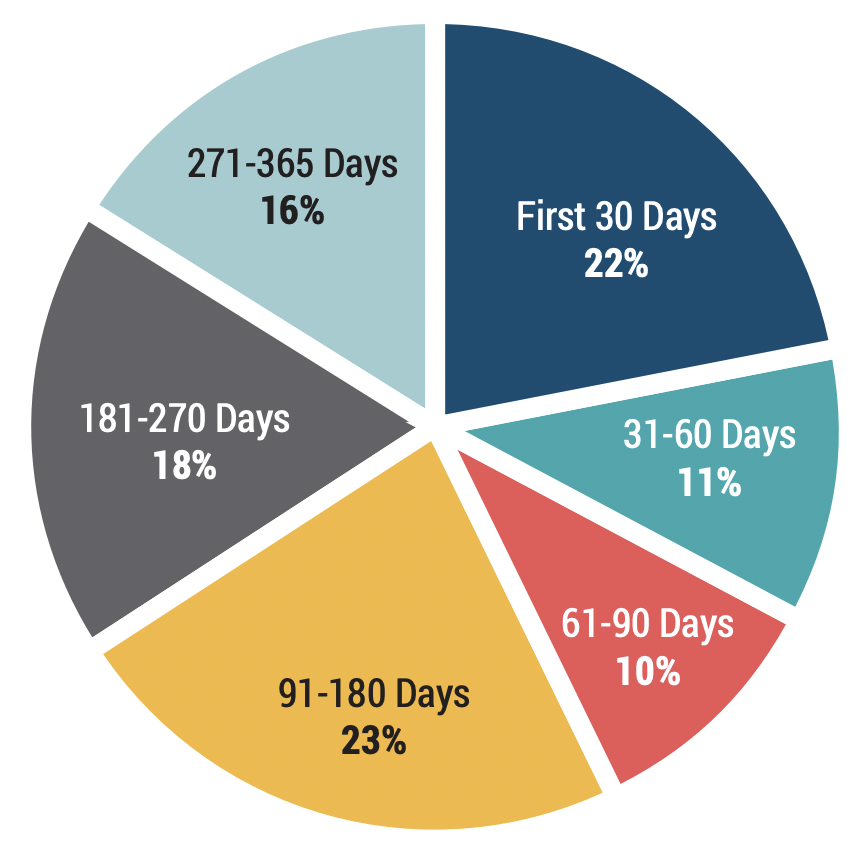In this article, we'll walk you through 7 big mistakes when hiring VAs in the Philippines and how to stay away from them.
Let's get right to it:
1. Wanting a jack of all trades
Just because VAs are known to wear many hats and can provide a wide range of in-demand services doesn't mean yours should carry an entire team's worth of responsibilities on their shoulders. Even if administrative tasks and time-management are their forte, you can't assume they'll produce the same quality of work for everything. Similarly, too many tasks on their plate will only result in missed deadlines and could even lead to costly mistakes.
That said, when finding your VA, think about why you need them in the first place. This helps you define the position, create a specific job description, and hire the right professional. It will also make it much easier to delegate tasks.
Here are a bunch of guides to help you find virtual assistants for specific roles:
2. Posting ads on random job sites
The more websites you post your job ad on, the higher your chances of nabbing a great VA, right?
Not quite.
While you can reach more job seekers this way, there’s no guarantee they’ll be decent candidates. Many job sites allow anyone to apply. No vetting needed, not even basic ID verification.
The result? Dozens of unqualified applicants slipping through the cracks.
Here’s what you can do to filter applicants
Make the screening process as stringent as possible
Think about the skills and experience your ideal VA should have and put them all on a list. But don’t stop there. Make a note of red flags and non-negotiables that will immediately remove a candidate from the running. This list is your cheat sheet. Consult it when you’re making the job description and interviewing candidates.
For the interview, prepare questions that ask about the applicant’s experience, how they solve and react to problems, and how they collaborate with a team.
Read between the lines
Don’t just scan an applicant’s CV: review their resume thoroughly. Notice any significant gaps between jobs? What about how long the candidate stayed at each one? These can be tell-tale signs that they’re not suited for a long-term position.
Use a headhunter agency like Somewhere
Have a jam-packed schedule and can’t fit in the time to properly screen applicants? Somewhere can help. As a headhunter agency that specializes in connecting businesses with virtual assistant Philippines, we make the hiring process so much easier.
Our team scouts for VAs, reviews their resumes and references, and then makes a list of the best candidates. You can keep your attention on the things that really need your focus while we find an amazing virtual assistant on your behalf.
Just tell us what you’re looking for and we’ll start the search.
3. Creating a vague job description

A job description can help you hone in on the virtual assistant you envisioned, when it’s done right.
When you do it wrong you’ll either attract everyone claiming to be a VA or get no applications at all. Take the time to create an informative JD. Put a lot of thought into it to avoid prolonging the hiring process.
Here are the ingredients of a good job description
Being specific about the skills you’re looking for
Remember the list of qualifications you wrote down? It’s gonna come in handy here.
But (and this is a huge but), it's important to set realistic expectations as well. It will be almost impossible to find someone who meets all your requirements, so separate your must-haves from the nice-to-haves. You don't want to turn away any promising candidates just because they don't check every box on your list.
Adding your mission-vision
Share your company’s purpose in the job description and tie it in with the VA role. Show that there’s a reason for the position beyond the mundane tasks.
Many folks might skip this section and go directly to the part where you mention compensation and benefits, but there are people out there who will resonate with your mission. Those are the individuals you want.
Spelling out your expectations
What other things should your VA have besides the skills you’ve mentioned? Depending on their tasks, you may require them to have:
- A noise-canceling headset
- Stable Wi-Fi and a backup connection
- Dual monitors
- A laptop running Windows 11
You get the gist.
Aside from equipment, include the salary range, your desired outcomes, and the work schedule.
Learn more: How to craft an effective job description
4. Not setting expectations before day one

Expectations matter a lot to employees. In a study by ThriveMap, 48% of people who quit their jobs did so because they felt blindsided by the actual role.
If you don’t want to waste anyone’s time and energy (including yours), share every detail you possibly can about the role, and keep it realistic. Clear expectations will ensure that the VA considering the position knows what they'll be getting themselves into.
In the job description, give applicants a picture of what a typical day in the role looks like. Then, you can shed more light on your policies, compensation, and benefits during the interview stage.
Be transparent about things like:
The work arrangement
Will your VA work on your time zone or stick to theirs? Can they set their own business hours? Maybe you want to follow a flexible schedule with some overlap for meetings? Whatever your choice, make sure to let them know.
Other things to specify are the project management tools and systems they'll use. Do you expect them to have their own laptop, or will one be provided to them? You also have to decide if you'll let your VA use a time-tracking app or whether to base their productivity on output alone.
Compensation
It’s best to let applicants know the salary range for the position right from the get-go. Aside from that, you also want to give info about:
- How often they’ll be paid
- Where you’ll deposit their pay (e.g., Veem, PayPal, Wish, Western Union)
- Appraisals (yearly, performance-based, or both?)
Benefits
Benefits play a big part in an applicant’s decision to accept or decline a job offer, so you gotta manage their expectations. Let them know what benefits they’ll receive and when they’ll be entitled to them.
Another thing to discuss would be whether they'll observe Filipino or American holidays. Just a heads up: your VA might expect to earn double their daily rate if they work on certain holidays, so break it to them nicely if your company won't be following this.
5. Judging qualifications by resume alone

Resumes give you an idea of where applicants are at in terms of skills and experience, but take that information with a grain of salt.
Someone may seem impressive on paper, yet a few months after hiring them, it may turn out that they’re not the right match after all. Maybe this virtual assistant doesn’t have the experience they listed, or they just don’t mesh well with the rest of the team.
That’s why you also need to consider:
Soft skills
When you’re hiring a VA in the Philippines, don’t just look at technical skills. Soft skills also matter if you want a well-rounded team member. These skills involve the ability to manage responsibilities and interact with clients and colleagues.
Here are some soft skills a good VA should have:
- Communication
- Punctuality
- Collaboration
- Critical thinking
- Time management
It’s tough to measure someone’s soft skills when you haven’t worked with them, but you can check their references and contact their past employers to get a feel for their work ethic. The interview itself can also help you gauge the candidate’s attitude and whether they fit in with the culture.
Portfolios
Depending on the VA role you’re looking to fill, you may want to require every applicant to submit a portfolio. If a resume tells you what a candidate has done, a portfolio shows you what their work is like. Video editors could provide links to videos they’ve produced, while a Pinterest VA may show you some Pins they designed on Canva.
Portfolios make the hiring process way faster, as you can separate the experienced from the not-so-experienced just by looking at a few samples.
Tests
Pre-employment tests are arguably more effective than resumes and portfolios combined. The downside of portfolios is that some of the work featured may have been heavily edited by someone else. With tests, you get the unfiltered version.
You learn so much from the results, like how well an applicant follows instructions, finds solutions to a problem, or in the case of social media assistants, creates content for different platforms. Since the tests are time-sensitive, you’ll also discover how they fare under pressure.
6. Putting cost above value
ItMany business owners are looking to save their business some money, but one thing you should NEVER cut corners on is quality. It would just jeopardize business growth.
Think of hiring a VA in the Philippines as a long-term investment. If you want the cream of the crop, you have to be willing to spend a little extra. Other companies will definitely snatch them up if you’re too modest with your offer.
Here’s how you can attract a top virtual assistant from the Philippines:
Provide a competitive salary
On average, you can hire Filipino virtual assistants full-time for $9,000 a year. You’ll need to pay higher if you want a more senior VA (around $1,000-$1,500 a month), but the rate is still much lower than hiring a local counterpart.
Give benefits
On top of their regular salary, think about offering your virtual assistant benefits like:
- Social security
- Healthcare
- Separate sick and vacation leaves
- Holidays off
- Internet subsidy
- 13th-month pay (it’s like a Christmas bonus)
Technically, your VA will be considered an independent contractor, so you aren’t required to give them any benefits. But we suggest offering them anyway to show them that you value their contributions to your company.
And you know what happens when your VA feels respected? They'll be motivated to do their best and will be more likely to stay with you longer. Everyone wins.
Use our salary guide as a benchmark
Want to know how much you should be paying for specific full-time roles in the Philippines? We have a guide for your easy reference. Download it here for free!
7. Having a poor onboarding process
If you haven't given your onboarding process much thought, you should be. The way you approach onboarding new hires can dictate their fate, and your company's as well.
A 2018 study conducted by CareerBuilder stated that 93% of new employees see the onboarding process as the deciding factor on whether to stay at their job. As for how many actually quit within a year, Work Institute’s 2019 Retention Report revealed that they make up 38% of the turnover rate.

A solid onboarding process means happier, more engaged employees, so make it a priority to fine-tune your existing one.
Here are some tips:
Be clear about your SOPs
Create slides or a document containing all your standard operating procedures. You can have different SOPs for different tasks, like publishing articles to your website or creating sales forecasts.
Give your virtual assistant a copy of your SOPs. Then, walk them through each step and answer questions they may have along the way. While discussing all the processes can be time-consuming, it will help your VA grasp them better and form a great basis for a fruitful working relationship. Clear communication will help both you and your VA get used to each other.
Schedule regular 1:1s
Filipino virtual assistants can be a little shy at first, but have frequent 1:1s with them, and we’re confident they’ll come out of their shells in no time. Use these calls to ask about their progress, challenges, and whether they need you to review anything. This is also a great time for providing constructive feedback.
Fully integrate your VA into the team
Once your virtual assistant has started getting the hang of things, you can then turn them into fully fledged members of the team. Start introducing them to everyone, including them in meetings, and CC’ing them in emails. Your VA must have a clue of what’s going on around the company.
Learn more: Best practices for onboarding virtual assistants
Don’t let these mistakes happen to you
It’s normal to feel clueless when you’re hiring a Filipino virtual assistant for the first time. There are a ton of things to keep in mind, and you can get overwhelmed thinking about it all—especially when you’re also swamped with other business matters.
But you don’t have to do the hiring process alone when you use our headhunter agency. You don’t even need to do the heavy lifting. If you’re set on hiring a VA in the Philippines, we’d be happy to help. Get in touch with us here.
FAQs about common VA hiring mistakes







.jpeg)






